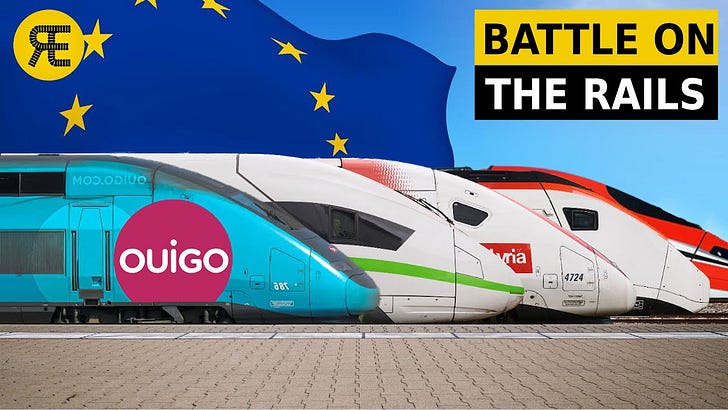I Don't 💗 Parking - MMD#573
Good day my good friend.
My heart bleeds for all of my friends in Southern Europe, China, and the USA right now. We know that climate change is behind the extreme heat those areas of the world are facing (and keeping the UK somewhat cool in comparison). Some will delay, and deny, that this is the case. They should be ignored, but who should not be ignored is the vulnerable people currently scorching in those parts of the world. They need your help.
Mobility Camp is taking place on 26th September 2023 in Birmingham. It would be great to see you there. Get your tickets now.
If you like this newsletter, please share it with someone else who you think will love it. I will love you forever if you do. ☺️
James
Driverless cars change the parking problem 🅿️
A few years ago now, a famous study of Lisbon set out a vision for autonomous, shared transport. The conclusions were that such a system could drastically cut the number of vehicles on streets, and cut the amount of parking. Sounds good, right? Especially for parking. More space for parks and social areas. But here’s the catch. The problem is just shifted.
Under such a scenario, instead of more parking for idle cars, the conflict is shifted to the kerbside. Unless there are radical reductions in vehicle numbers, those same cars will jostle for roadside space instead. This study of San Francisco looks at the implications of changes to drop off traffic, and the results are mixed. In some areas, traffic flow is improved, while in others it is worse. Hard and fast rules are made complicated by the dynamics present on each street, and shared use autonomous vehicles are by no means a panacea.
Mountain high ⛰️
I love quirky bits of transport research that have no right to be interesting, but somehow are. And that is the case with this research on the mobility habits of seniors in mountainous areas around Tokyo. This is actually useful, as rural areas tend to be older on average than urban areas. So understanding the mobility habits of senior citizens in rural areas is rather important.
Simply, this paper uses a different demand estimation method to estimate the demand for trips in such areas. And the results are very interesting indeed, stating that we may be underestimating the trips people want to take in such areas.
The analysis results demonstrate that the conventional trip demand model, established using realized trip demands, underestimates the trip demand in the target area and show that the estimated parameters are biased. The conventional trip demand model neglects 30–50% of trip demands in the target area and cannot provide the trip demand required for appropriate transportation planning.
Random things 📚📰
These links are meant to make you think about the things that affect our world in transport, and not just think about transport itself. I hope that you enjoy them.
A Good Prospect: Mining Climate Anxiety for Profit (The Drift) ⛏️
Massive Norwegian phosphate deposit could meet battery and solar demand for 50 years (Mining) 🔋
The UN just set a net-zero goal for shipping. Here’s how that could work. (MIT Technology Review) 🛳️
Slave Trade Legacies in Britain and the Question of Reparations (Internationalist 360) 💰
Scientists Apparently Taught Brain Cells How to Play Pong (Gizmodo) 🖥️
Something interesting 📼
On some routes in Europe, there is actual competition in high speed rail. Here in the UK the most notable example is the East Coast Mainline, with LNER, Lumo, and Grand Central fighting it out for intercity passengers. But this is also happening elsewhere in Europe too. And its no bad thing.
If you do nothing else today, do this ☟
A really underrated transport strategy is that of the Brussels City Region. Eltis have a great profile of City 30 that you must read, and action for yourself.


